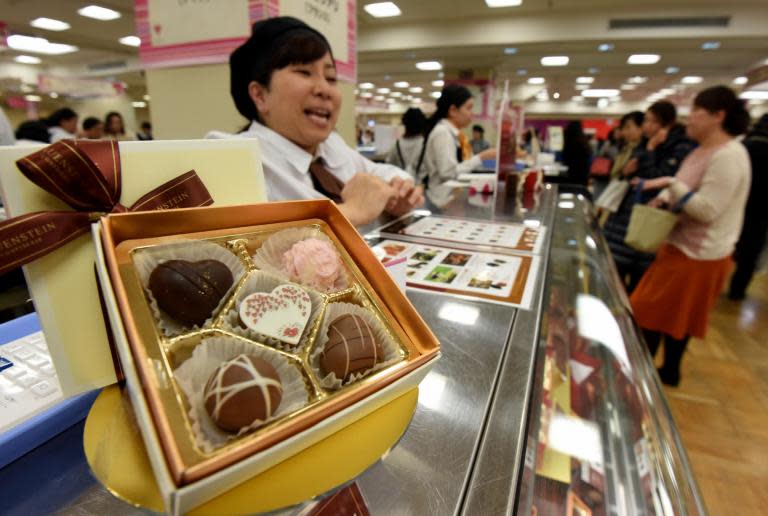Valentine's Day: Japanese women push back against ritual of giving chocolates to male colleagues
Women in Japan are rebelling against a long-standing tradition which forces them to give chocolate to male colleagues on Valentine’s Day.
The ritual, which is called giri choco, started in the 1950s and translates as “obligation chocolates”.
Women in the workplace are expected to buy chocolates for their male co-workers, and men are supposed to return the favour on 14 March on White Day – an event devised by chocolatiers in the early 1980s to boost sales.
However, growing numbers of women are snubbing the Valentine's Day tradition, instead opting to buy presents for themselves rather than spending thousands of yen on chocolates for colleagues.
Some firms are now banning the tradition, which is viewed by many in the country as a form of abuse of power and harassment.
A survey of women in Japan found more than 60 per cent will instead buy chocolates for themselves on Valentine’s Day this year, while only 35 per cent of women said they planned to offer chocolate to their male colleagues.
More than 56 per cent said they would give chocolates to family members, while 36 per cent would make the same gesture towards partners or someone they fancy.
Belgian chocolatier Godiva ran a full page advert in a Japanese newspaper ahead of Valentine’s Day last year, urging businesses to tell women not to hand out chocolates to men at work if they felt pressured to.
It said: “Valentine’s Day is supposed to be a day when you tell someone your pure feelings. It’s not a day on which you’re supposed to do something extra for the sake of smooth relations at work.
“So men, especially if you’re the top person in your company, tell the women in your office ‘don’t force yourself to give anyone giri choco’.”
Japan has recently been in the public eye for failing to recognise gender equality in the wake of the global #MeToo movement against sexual harassment and assault.
The East Asian country ranks bottom of the G7 countries on female representation in politics and business.
A number of medical universities in Japan last year admitted to meddling with entrance exam scores to deliberately put female applicants at a disadvantage.



